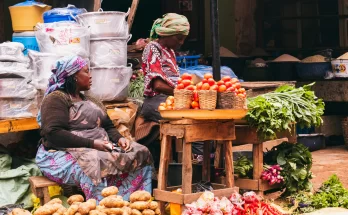GRA highlights the lack of adequate voters education as the reason for the low compliance
Only 20% of eligible taxpayers paid income tax in Ghana is a recent statement from a recent study accredited to the Ghana Revenue Agency.
The study shows that low taxpayer knowledge among Ghanaians is the reason why only 20% of eligible taxpayers paid income tax.
These statistics made it to the public domain, in a recent address by the Assistant Commissioner at the Office of the Commissioner-General, Dominic Naab on behalf of Commissioner-General of the Ghana Revenue Authority (GRA), Reverend Dr. Ammisshadai Owusu-Amoah at a GIZ Validation Workshop with the National Steering Committee on the Inter-Faith Platform on Accountability in Accra.
He revealed that the GRA was unable to deliver tax education to everyone in the country, recognizing that an opportunity in leveraging religious actors and their platforms to spread the message on taxation far was important.
He mentioned that the GRA is supposed to take advantage of the religious leaders’ influence in this part of the world to maximize the body’s efforts.
The Commissioner-General has implored individuals and businesses to make tax payment a religious obligation as it was commanded in the scripture.
He stated that the GRA is authorized to administer and collect domestic taxes to fund budget expenditure and that the people are allowed to hold the government accountable for these funds.
He also stated that it is part of every citizen’s civic responsibility to pay taxes as taxation is the bedrock of every society.
Reverend Dr. Ammisshadai mentioned that taxes go a long way to support the government’s development agenda by helping to finance recurrent expenditures such as the payment of personal emoluments of public/civil sector employees, financing capital expenditures including roads, financing social intervention projects such as the Free Senior High School program, and making statutory payments to institutions such as GETFund.
GRA’s Effort to Curb Dearth of Taxpayer Education
The GIZ-Governance for Inclusive Development Program (GovID) is helping the government to raise domestic revenues, and improve public financial management and accountability by closing the gaps in taxpayer education.
In collaboration with the Ministry of Finance, new tax policies were formulated and already established ones revised in collaboration with the GRA all to help make revenue administration more effective.
According to a base study conducted by GovID – GIZ, a collaboration with Faith Based Organisations (FBOs) could help the government reach out to many potential taxpayers and help generate more domestic revenues in the country.
According to a report reviewed by africataxreview.com, the Programme Manager of the GovID – GIZ Ghana, Raphael Frerking, said that the study revealed that many citizens place an enviable amount of trust in religious actors and this makes them interesting stakeholders to increase tax compliance by emphasizing the linkages between tax payments, accountability, and good governance.
In specific, the collaboration has brought about setting up a National Steering Committee and establishing the inter-faith dialogue platforms in Accra, Kumasi, and Tamale as the three pilot regions.
Through the scheme, many religious leaders have been trained and could increase their knowledge of taxes and accountability. He also stated that they planned to expand beyond these pilot regions and engage other religious leaders in the other regions.




